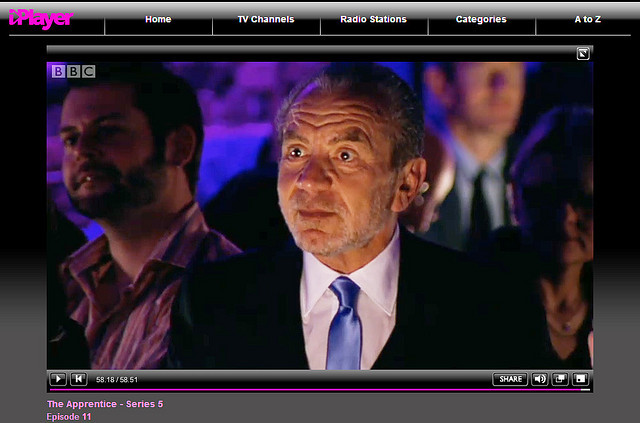I was a big fan of The Apprentice when it came onto the scene in 2005, when 14 upstarts from the transport, property, finance and other sectors came together in the hope of landing a lucrative job with one of Britain’s most famous business personalities.
It took the concept of an apprenticeship, which had traditionally been thought of as an entry to trade jobs like plumbing, carpentry or engineering, and brought it into the 21st century. With Sugar’s business interests ranging from consumer electronics to aviation, the position promised an apprenticeship in the world of big business.
Perhaps in response to the fact that very few of the show’s winners failed to hold down their £100,000 a year job with Sugar, series 4 winner Lee McQueen famously called in sick on his first day and season 6 winner Stella English recently lost a court battle against the ageing entrepreneur, the show underwent an update in 2011.
Gone was the offer of a job at the end, and in its place was an investment of £250,000 into the most promising business venture. The change reflected a growing trend of Brits wanting to start their own company and solved the issue of securing that all-important early-stage capital problem.
More on The Apprentice:
My first issue with this format is that nowhere in the business world would you find someone forfeiting a 50 per cent stake in their company for a quarter of a million pound investment. The purpose of an angel commitment is to give a preferred entrepreneur the firepower needed to get their start-up that little bit further, not take away the ability to make quick decisions and become an equal partner.
Angel investments are supposed to be followed by later, and larger, investment deals to finance future development. Surrendering half of the company from the outset makes this very hard.
Finance is hard to come by these days, and the addition of Alan Sugar’s public presence and business contacts will go a long way towards helping a fledgling company develop, but there are surely better alternatives available.
The other problem with the show’s current format is that Alan Sugar is no longer looking for someone to work for him, rather discover who has the most promising idea. This means that the 12 weeks of largely sales-orientated tasks will be largely irrelevant when it comes to determining where his £250,000 is best spent. The ability to turn unwanted stock into a quick buck would have been an important consideration for Sugar’s early apprentices, but sales is only a small portion of what is need to start, run and grow a successful business.
Having watched the three series culminating in the £250,000 investment, it seems that The Apprentice has got itself into a little pickle. The tasks have remained this same, so it becomes a balancing act between rewarding the best sales people but also making sure that those with the best business idea to bring to the final episode are not cast aside.
The winner of Sugar’s first investment, Tom Pellereau, is an inventor and one of the least equipped salesmen to appear on the show. I wonder how much weighting was given to his business plan, which saw Sugar and Pellereau ultimately launch first a chair targeted at people with back pain and then a range of innovative nail care products, when deciding upon the outcome. After all, Pellereau was only on the winning team in one week and Sugar flat out admitted that had the prize been a job offer it would have gone to someone different.
For the show to have any life it needs to decide who it is finding, the best apprentice or the best entrepreneur. If it were up to me I’d be inclined to go down the entrepreneur route, and bring in tasks that are much better suited to determining whether someone can actually execute on an idea. That way we can get an early look at the possible next generation of future business leaders and learn about what goes into turning an idea into a profitable business. Rather than running a market stall for an afternoon, candidates would be required to demonstrate skills in making partnerships, hiring the right people and creating demo products.
That way the world of apprenticeships can be driven by the big government boost that it has received during the last few years – in an effort to make it a more enticing training and recruitment method for businesses big and small.
For the meantime, I’m pretty sure that I’ll continue to watch The Apprentice. Not because I’m particularly interested to find out the winner and the business they’ll be launching but because it’s actually quite entertaining for a team of ten people to be given what must quite often be thousands of pounds worth of stock and return to Sugar’s boardroom with a measly £322.56.






